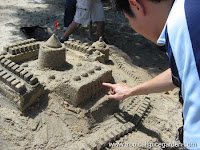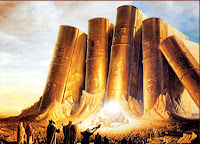Last week the Jewish Press ran an article titled “Where Have All Our Middos Gone?”
The article has generated some buzz and this week the Jewish Press printed a fantastic letter to the editor written by R Micha Berger.
The letter can be found here, by scrolling down the page or you
can just read this:
Constructive Solutions
Re: Soferet Dugri’s front-page essay “Where Have All Our Middos Gone?”
I agree this is a burning question. Perhaps it is the greatest issue we must address today for our own souls, as well as to stem the tide of children choosing to leave Orthodoxy. And how much easier kiruv would be if people exploring Torah observance didn’t encounter such situations, either first hand or in the newspapers?
But rather than lament the loss of middos in the frum world, let’s do something about it! We can benefit from centuries of conceptual development and techniques for improving our middos. Notably R’ Yisrael Salanter and the Mussar movement produced an actual plan one can follow to create a middos-centered Judaism. R’ Shlomo Wolbe, zt”l, has step-by-step instructions in Alei Shur, Volume II, Section 2, for running groups that work on their middos together.
We at the AishDas Society (www.aishdas.org) have experience setting up such programs, and would be happy to help your shul or community get started. We can also assist with one-off events such as providing speakers, a shul Shabbaton or Yom Iyun, etc. Feel free to contact us at the above site for more information.
In Highland Park, New Jersey, there is an initiative called ACTT (www.actt613.org), an applied approach to working on one’s middos that has the support of the community’s rabbis. Look into that as well.
Haven’t we gotten beyond the point where just acknowledging a problem exists is considered a step forward? If we continue to sit around lamenting the situation rather than working to fix it, things won’t ever actually improve.
Rabbi Micha Berger
(Via E-Mail)





